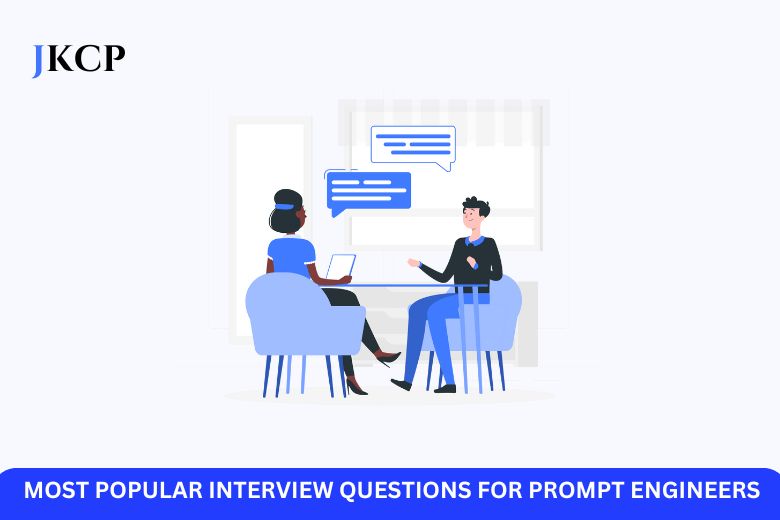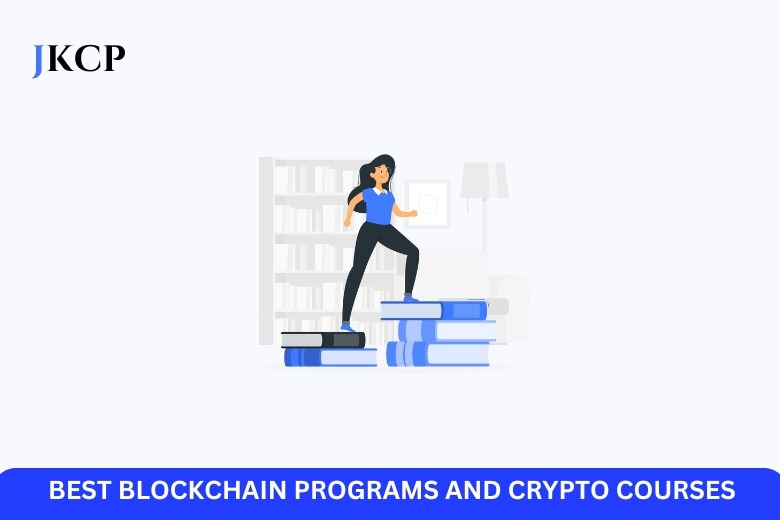Top DAO Interview Questions and Answers
If you are interested in Decentralized Autonomous Organizations like me, you’ve probably noticed how DAOs are making waves in the blockchain world. They’re not just a buzzword anymore; they’re changing how we think about organizations, governance, and even jobs. Whether you’re gearing up for your first DAO-related interview or just brushing up on your knowledge, having solid answers to key questions is crucial. I’ve pulled together some of the most common DAO interview questions and tips on tackling them so you can walk into that interview ready to impress.
General DAO Questions
What is a DAO?
A Decentralized Autonomous Organization (DAO) is an organization represented by rules encoded as a computer program that is transparent, controlled by organization members, and not influenced by a central authority. DAOs rely on blockchain technology, specifically smart contracts, to automate decision-making processes and organizational governance.
Why is it asked
This question tests your fundamental understanding of DAOs. Employers want to know if you know the basic principles and technology behind DAOs.
How to answer
Start by defining DAOs, mentioning their decentralized nature, and highlighting smart contracts’ role in governance and decision-making. It’s also important to note how DAOs offer increased transparency and accountability compared to traditional organizations.
How do DAOs differ from traditional organizations?
Traditional organizations operate under a centralized management structure, where executives or designated leaders make decisions. In contrast, DAOs distribute decision-making across a network of members. DAOs utilize smart contracts, meaning their operations are automated based on pre-defined conditions. This eliminates the need for intermediaries and central leadership.
Why is it asked
Interviewers want your ability to explain traditional and decentralized organizations’ conceptual and structural differences.
How to answer
Highlight the decentralized decision-making, the role of blockchain technology, and the open governance structure that allows all members of a DAO to participate in decision-making. Mention how this leads to more democratic and transparent operations.
Technical DAO Questions
What blockchain platforms are commonly used for DAOs?
DAOs are primarily built on blockchain platforms that support smart contracts. Ethereum is the most commonly used platform because of its advanced smart contract capabilities and large developer ecosystem. Other blockchain platforms like Polkadot, Tezos, and Binance Smart Chain are also gaining popularity in the DAO ecosystem.
Why is it asked
Employers want to see if you understand the technical infrastructure that supports DAOs.
How to answer
Discuss Ethereum’s dominance due to its flexible smart contracts and decentralized apps. Mention other blockchains like Polkadot, known for interoperability, or Tezos, which offers on-chain governance improvements.
How do smart contracts function within a DAO?
Smart contracts are the backbone of a DAO’s operations. They are self-executing contracts with the terms directly written into code. In a DAO, these contracts govern everything from voting to fund management. Once certain conditions are met, a smart contract automatically executes the related functions, ensuring that processes are transparent and immutable.
Why is it asked
This question tests your understanding of how DAOs operate at a technical level, especially how smart contracts eliminate intermediaries.
How to answer
Emphasize how smart contracts are used to automate governance, execute rules, and manage treasury without human intervention. Provide an example, such as how a DAO may use a smart contract to distribute funds once the community approves a proposal automatically.
Governance and Voting System Questions
How do DAOs manage governance and decision-making?
DAOs rely on community-driven governance models where member votes make decisions. These votes typically occur on a blockchain, where each member’s voting power may be proportional to the number of tokens they hold. Voting mechanisms such as direct democracy, liquid democracy, and delegated voting are commonly used in DAO governance systems.
Why is it asked
Employers want to know if you understand the decentralized decision-making process core to a DAO.
How to answer
Explain how DAOs use token-based voting systems where community members submit and vote on proposals. Mention the different voting mechanisms and how blockchain ensures transparency and immutability in governance decisions.
What are the potential challenges of decentralized governance?
While decentralized governance offers transparency and inclusivity, it also faces several challenges. One of the most significant issues is voter apathy, where only a small portion of members participate in votes, potentially leading to decisions made by a minority. Another challenge is ensuring scalability while maintaining decentralization. Power concentration in the hands of major token holders can also undermine true decentralization.
Why is it asked
This question assesses your awareness of the practical difficulties DAOs face in maintaining effective governance.
How to answer
Acknowledge the potential issues like low voter participation and power centralization. Suggest solutions such as voter participation incentives, voting power delegation, and designing mechanisms to prevent token accumulation by a few members.
DAO Security and Compliance Questions
What are the major security risks associated with DAOs?
DAOs reliant on smart contracts are vulnerable to various security risks. A single bug in the smart contract code can be exploited, leading to significant financial loss, as seen in the infamous 2016 DAO hack. Other risks include governance attacks, where malicious actors gain majority control, and oracle manipulation, where external data sources feeding information to DAOs can be tampered with.
Why is it asked
Employers want to know if you know the potential vulnerabilities DAOs face and how to mitigate them.
How to answer
Point out the risks of bugs in smart contracts and governance attacks. Mention the importance of code audits, formal verification, and community oversight to mitigate these risks.
How do DAOs ensure compliance with regulations?
Compliance with regulatory frameworks is a complex issue for DAOs, as they operate across multiple jurisdictions and often lack a central authority. To ensure compliance, DAOs can implement Know Your Customer (KYC) protocols for participants and work within the legal frameworks of jurisdictions where they are most active. In some cases, DAOs may form legal entities or partnerships to align with local laws.
Why is it asked
This question assesses your knowledge of how DAOs navigate legal and regulatory challenges.
How to answer
Discuss the regulatory uncertainty surrounding DAOs and highlight how compliance measures like KYC can be integrated into decentralized systems. Mention the growing trend of DAOs establishing legal structures to comply with regulations.
Scenario-Based Questions
If a critical bug is discovered in a DAO’s smart contract, how would you handle it?
Handling a critical bug in a DAO’s smart contract requires swift action to prevent exploitation. The first step is to freeze the affected contract or treasury if possible. Then, a new proposal should be submitted to rectify the issue, and community consensus must be sought to deploy a new contract or patch the existing one.
Why is it asked
Interviewers want to see how you handle crises and whether you understand the technical and governance implications.
How to answer
Explain a systematic approach: first, contain the issue by freezing assets, then communicate transparently with the community, propose a solution, and follow the governance process to resolve the issue.
How would you encourage active participation in DAO governance?
Incentivizing members through rewards or staking systems can encourage active participation in DAO governance. Additionally, simplifying the voting process, ensuring user-friendly interfaces, and creating clear, understandable proposals are all effective strategies. Regularly engaging the community and promoting discussions on key issues can also increase involvement.
Why is it asked
This question tests your understanding of community dynamics and governance.
How to answer
Suggest practical ways to motivate participation, such as offering token rewards for voting or implementing more accessible voting mechanisms. Highlight the importance of transparent communication and involving the community in decision-making.
Personal Experience and Skill-Based Questions
What experience do you have working with DAOs?
Your experience with DAOs can involve directly participating in a DAO community, contributing to DAO development, or building projects that integrate with DAOs. Remember to emphasize any hands-on experience and how it has shaped your understanding of decentralized governance.
How to answer
Provide specific examples of your involvement with DAOs, whether participating in governance, developing smart contracts, or contributing to DAO-related research. Highlight how these experiences prepare you for the role.
What are your thoughts on the future of DAOs?
DAOs are poised to transform industries beyond just blockchain and cryptocurrency. Their decentralized governance models offer opportunities for innovation in areas like finance, social networks, and even public goods management. The future will likely see DAOs becoming more scalable, accessible, and integrated with legal frameworks, driving mainstream adoption.
Why is it asked
Employers want to gauge your vision for the future of DAOs and how you stay informed on industry trends.
How to answer
Share your insights on the current challenges DAOs face, such as scalability and regulation, and your vision for how they might evolve to become more influential in mainstream sectors.
Conclusion
Getting ready for a DAO interview can initially feel intimidating, but you’ll be ahead of the game with some preparation. These interview questions are designed to test your knowledge and show how you think about decentralized organizations and the future of this space. Take the time to practice your answers and research, and remember that DAOs are all about community and transparency, so don’t be afraid to show your passion for decentralized tech. You’ve got this!



